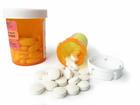|
Millions of consumers are using the Internet to get health information. And thousands of web sites are offering health information. Some of those sites are reliable and up-to-date; some are not. How can you tell the good from the bad? Some websites that sell medicine can be not state-licensed pharmacies or aren't pharmacies at all; or may give a diagnosis that is not correct and sell medicine that is not right for you or your condition; or won't protect your personal information. Buying your medicine online can be easy. Just make sure you do it safely.
Drug interactions may make your drug less effective, cause unexpected side effects, or increase the action of a particular drug. Some drug interactions can even be harmful to you. Early in a drug's development, companies conduct research to detect or predict potential interactions between drugs. Experts evaluate the drug-interaction studies as part of assessing a drug's safety. Mixing two drugs together could make one of the drugs ineffective. The combination also could increase a drug's effect, and be harmful. The result might be mild symptoms such as nausea, stomach upset, or headache, or more serious symptoms such as a dramatic drop in blood pressure, irregular heart beat, or damage to the liver-the primary way that drugs pass through the human body. The most important enzymes in the liver that metabolize drugs are called the cytochrome P450 family of enzymes. These enzymes break down drugs when they pass through the liver or small intestine. Not everything that happens in a test tube will become meaningful in humans, though. Results from these test-tube studies can tell us whether need to do further testing in people to find out if an interaction is clinically significant. So rather than asking patients what medications they take, doctors should make the questions specific: "Are you taking any over-the-counter medication? Are you taking any herbal treatments or vitamins?" But it is good way -- consumers remind doctors of everything they take when they are prescribed a new medication. So a patient might say: "Now remember, I'm also taking birth control pills. Is there a risk of interaction with this new medicine?" Some antibiotics, such as rifampin, can lower the effectiveness of birth control pills. Sildenafil, the active ingredient in the erectile dysfunction drug Viagra, should not be taken with nitrates for heart treatment because of the potential for dangerously low blood pressure.
Although medicines can make you feel better and help you get well, it's important to know that all medicines, both prescription and over-the-counter, have risks as well as benefits. The benefits of medicines are the helpful effects you get when you use them, such as lowering blood pressure, curing infection or relieving pain. The risks of medicines are the chances that something unwanted or unexpected could happen to you when you use them. Risks could be less serious things, such as an upset stomach, or more serious things, such as liver damage. Before using any medicine--as with many things that you do every day--you should think through the benefits and the risks in order to make the best choice for you. There are several types of risks from medicine use: a) The possibility of a harmful interaction between the medicine and a food, beverage, dietary supplement (including vitamins and herbals), or another medicine. Combinations of any of these products could increase the chance that there may be interactions. b) The chance that the medicine may not work as expected. c) The possibility that the medicine may cause additional problems. For example, every time you get into a car, there are risks---the possibility that unwanted or unexpected things could happen. You could have an accident, causing costly damage to your car, or injury to yourself or a loved one. But there are also benefits to riding in a car: you can travel farther and faster than walking, bring home more groceries from the store, and travel in cold or wet weather in greater comfort. For example, if facing a life-threatening illness, you might choose to accept more risk in the hope of getting the benefits of a cure or living a longer life. On the other hand, if you are facing a minor illness, you might decide that you want to take very little risk. In many situations, the expert advice of your doctor, pharmacist, or other health care professionals can help you make the decision. You need keep an up-to-date, written list of ALL of the medicines (prescription and over-the-counter) and dietary supplements, including vitamins and herbals, that you use--even those you only use occasionally. Important things is tell to your doctor about any allergies or sensitivities that you may have. Tell about anything that could affect your ability to take medicines, such as difficulty swallowing or remembering to take them. You have to always tell your doctor if you are or might become pregnant, or if you are nursing a baby. Always ask questions about any concerns or thoughts that you may have. Before starting any new medicine or dietary supplement (including vitamins or herbal supplements), ask your doctor again if there are possible interactions with what you are currently using.

|